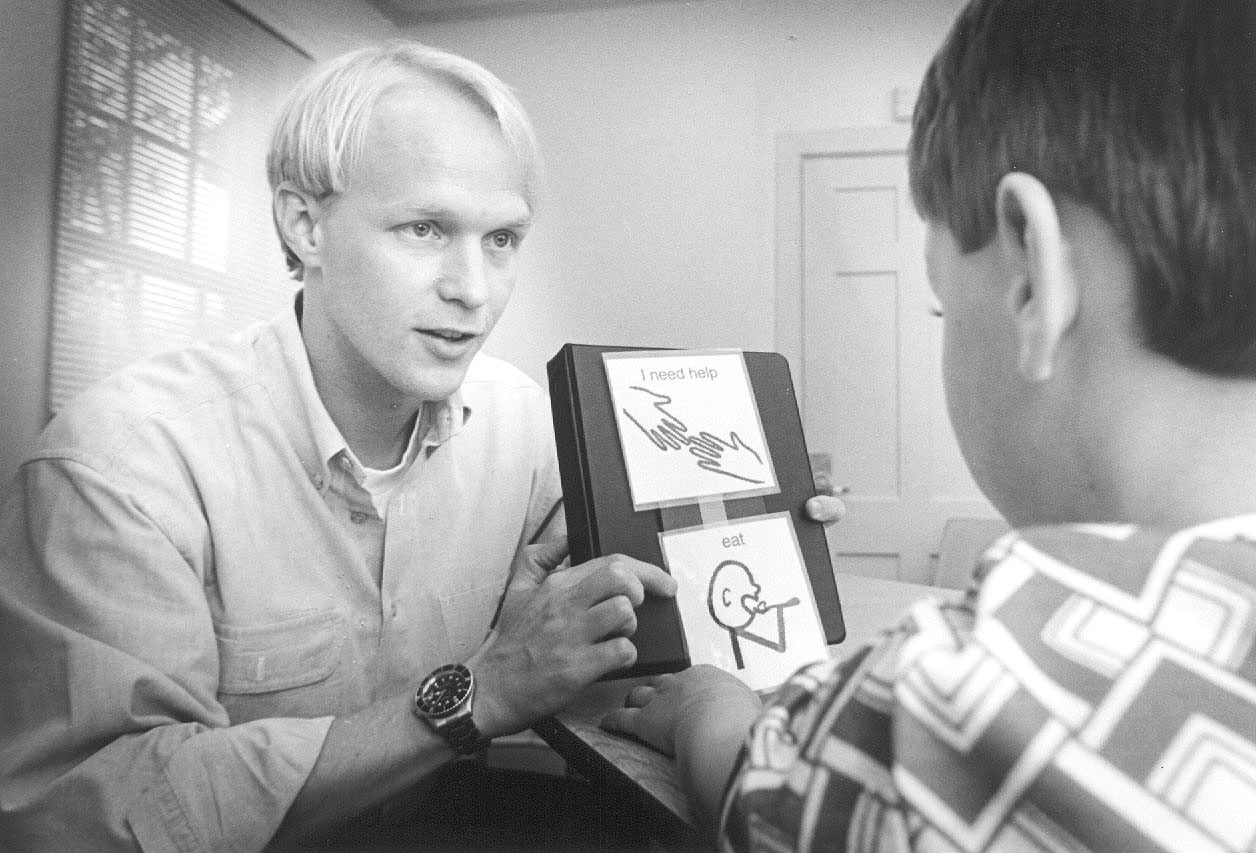Contact: Maridith Geuder

MSU doctoral candidate Mark E. Wildmon
A Mississippi State University doctoral candidate with a special dream for his home state is one of five chosen for a national research program associated with a major medical school.
Mark E. Wildmon of Tupelo has a 1999 internship at the Kennedy Krieger Institute, an affiliate of the Johns Hopkins School of Medicine.
He will graduate from MSU in May with a doctor of education degree in school psychology. Chosen from more than 250 applicants, he begins the yearlong internship in July.
The Kennedy Krieger Institute works with children whose disabilities include cerebral palsy, spina bifida, learning disabilities, and traumatic brain injuries, among others. The Baltimore, Md., facility annually cares for more than 10,000 young patients.
Wildmon, a 1989 Tupelo High School graduate, will work in the neurobehavioral unit, which provides assessment and treatment of children with biological and genetic disabilities. "We'll assess children to determine environmental factors that may influence behavior disorders," he explained.
Wildmon said his goal is to return to Mississippi and establish a day program for children with severe developmental problems. The proposed program "would provide consultation and training to physicians, parents and teachers in how to serve these children most effectively."
Christopher Skinner of MSU said Kennedy Krieger is recognized as an international leader in treating and preventing problem behavior often associated with neurological disorders and developmental disabilities.
"The institute comprises some of the world's leading physicians, doctoral-level clinicians and licensed therapists who work as a team to ensure quality care for children with disabilities," he added.
Wildmon's adviser, Skinner directs MSU's school psychology doctoral program, which is accredited by the American Psychological Association.
Wildmon, the first Mississippi State student to receive the internship, said he sought the opportunity because the Maryland institute's approach is similar to that taught at the Starkville university.
Skinner said both programs "approach the remediation of childhood difficulties from the same theoretical perspective, emphasizing the importance of supporting and validating treatment effectiveness through behavior analysis."
Wildmon began working on his MSU doctorate after receiving a bachelor's degree in psychology from Mississippi College.
During his graduate studies, he has consulted with area schools as a behavioral specialist to assist in assessment and remediation of problem behaviors such as self-injury, tantrum and aggression. Last summer, he provided assessment and intervention services at the Stallings Center/Rural Infant Stimulation Environment Program in Tuscaloosa, Ala.
In addition, he has worked as a research assistant at the New England Center for Children, a 130-patient residential facility in Southborough, Mass., that focuses on individuals with autism.
Skinner said Wildmon's goal of opening a day program and outpatient facility in Mississippi would be significant-and historic.
"It would be the first program in the history of Mississippi that solely integrates the technology of behavioral science in the education and treatment of children with various neurobiological disabilities," he said.